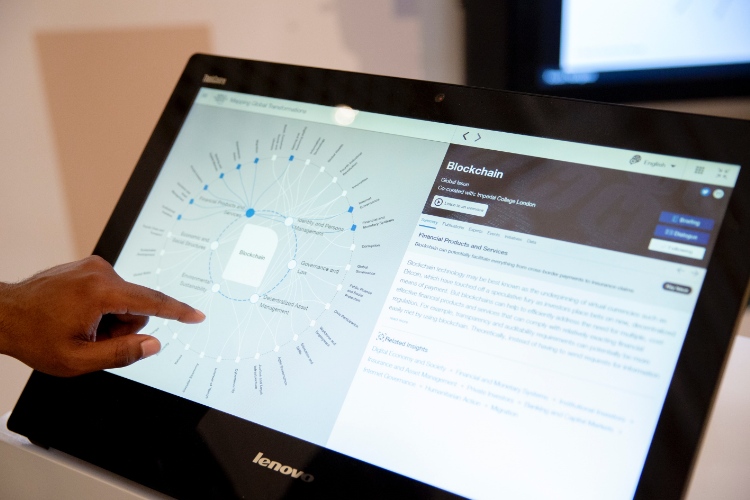The habitual use of big data and the use of data analysis to personalize service to the utmost are two clear trends being applied to the reactivation of the sector.

The habitual use of big data by most tourism and hotel companies and the use of data analysis to personalize service to the utmost are two clear trends being applied to the reactivation of the sector. This is according to the experts who participated in the latest #HTSIWebinar, held on May 6, which focused on managing the uncertainty of tourism demand in the future.
Claudia Rodríguez, director of marketing and direct sales for Ona Hotels; Laura Martínez, director of client success for The Hotels Network; and Fernando Ramiro, director for Spain and Portugal for Expedia Group, all took part in a debate mediated by Albert Fornells, vice dean of HTSI. They discussed how to manage the reactivation of the tourism sector with the use of technology.
All three participants agreed that the data from past years that hotels generally use to establish predictions are no longer useful due to the current pandemic. As a result, companies must learn to use new tools that allow for real-time management of digital data generated both internally and by the competition.
As Ramiro explained, data now “expire in just a few minutes—we never know what will happen. That means real-time information is key.” Claudia Rodríguez added that most hotels “are used to working with data, but we find ourselves immersed in a new reality where data is scarce or useless. We used to be able to talk about trends over time, but now we need to talk about here and now.” According to Laura Martínez, the key is to not dwell on the past and to invest in tools that “allow us to see what segments are being reactivated, and which are waiting for things to reopen before making decisions.”
Expedia Group’s director for Spain and Portugal insisted that “if anyone says they don’t have information or access to data, it just means they don’t want it. Any platform can provide plenty of options for information. We need to wake up and start learning. We’ve had a whole year with everything on standstill: we’ve had plenty of time to catch up.” Along the same lines, the director of marketing for Ona Hotels noted that hotels and other companies have had plenty of time to get ready: “the challenge is to get our teams working again, to be ready as soon as the demand is reactivated. We need to reactivate our teams as soon as possible.”
“Adaptabiliy based on data will define new trends"
According to the director of client success for The Hotels Network, the personalization of services using big data analysis is on the rise: “increasing use of direct webs to answer doubts on hygienic measures, the flexibilization of cancellations and the digital shift in society caused by the pandemic provide hotels with extremely direct data on clients.” As a result, personalizing services to the utmost will be fundamental to regaining customer loyalty. Fernando Ramiro added that we often speak to guests without remembering that we are customers ourselves: “you need to put yourself in your clients’ shoes, offer them the same things you would enjoy. Adaptability based on data is going to define trends from now on.”
Claudia Rodrígez emphasized the synergies that are currently being generated, many of which seem not to have been so common before the pandemic: “there’s a greater degree of trust between hotels and OTAs when it comes to sharing and analyzing data, for example.” On an internal level, the head of marketing for Ona Hotels noted that hotel departments have stopped working in such an insular manner, and have begun to share more data throughout the hotel. “We need to look for synergies and not get bogged down in our own departments”, she concluded.
Another fundamental element is the generalized use of websites adapted to mobile phones as an essential tool for reactivating demand. “Hotels need to have their mobile webs ready for use until the end of the conversion funnel”, Martínez explained. Fernando Ramiro added that “any hotel without its own mobile strategy is missing out on a big part of the business: they’re losing a target audience that makes reservations online or by phone call. Each profile and age has its own digital education, and it’s important to adapt to that.”
Since April of 2020, HTSI has been organizing online seminars (#HTSIwebinars) in collaboration with strategic businesses and organizations from the tourism and hotel sector. These seminars offer an opportunity to exchange points of view, strategies, rules of best practice and advice in the exceptional circumstances the pandemic has brought upon the industry. All past webinars are available on HTSI’s Youtube channel.










